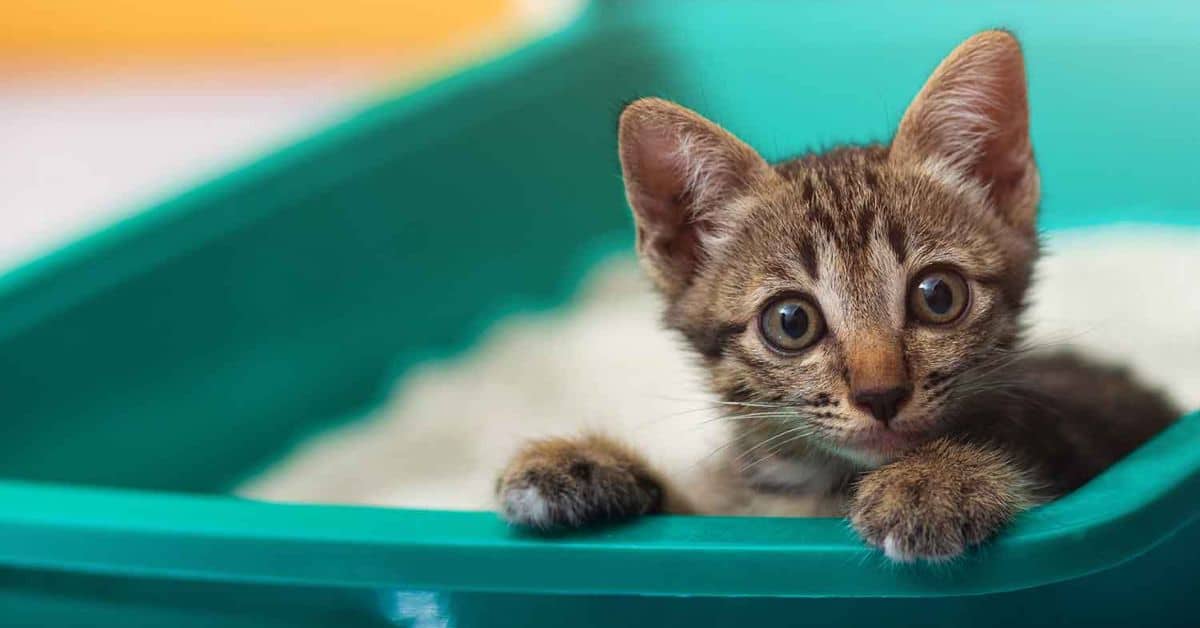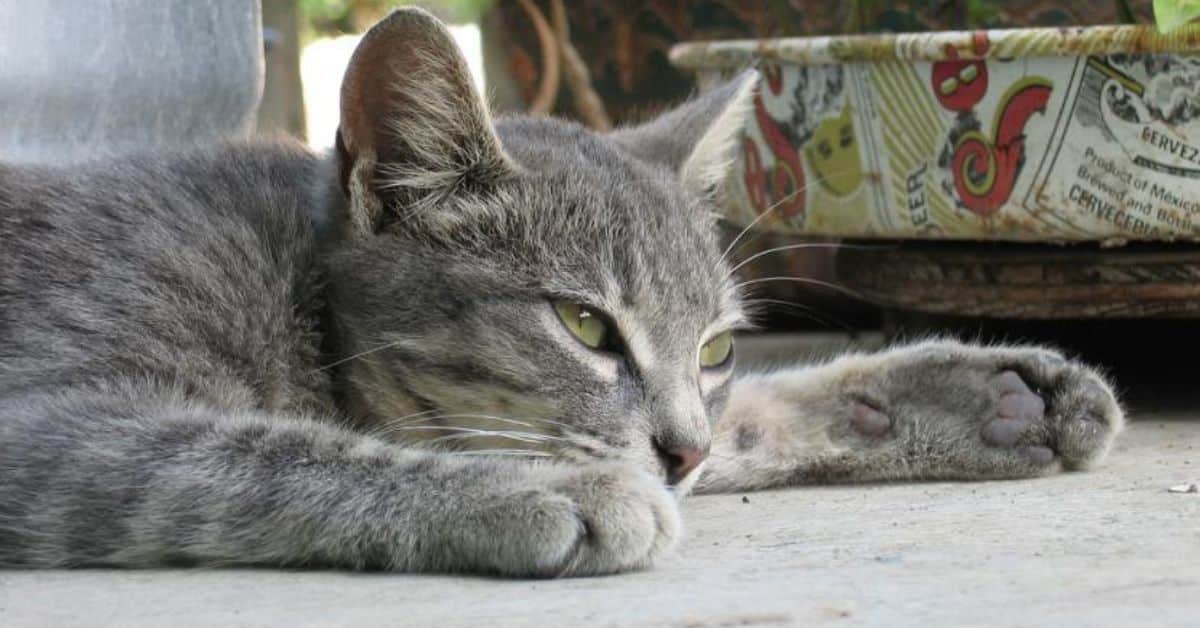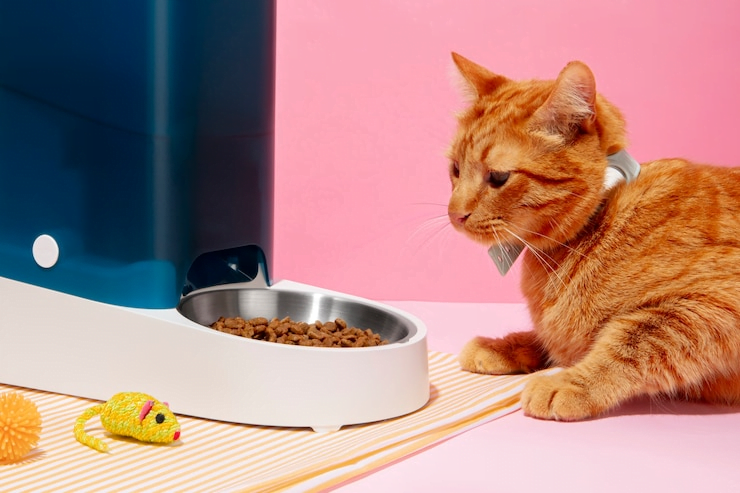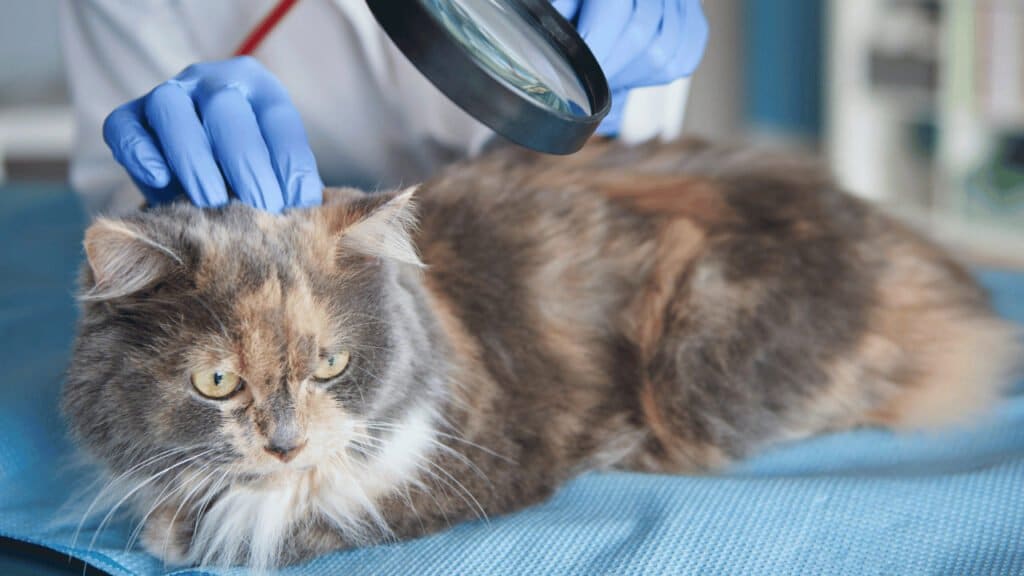Noticing blood in your Female Cat Blood in Urine can be alarming and warrants immediate attention. Hematuria, the medical term for blood in the urine, is often a symptom indicative of various underlying health issues. These can range from urinary tract infections (UTIs) and bladder stones to more severe conditions such as kidney disease or tumors.

The cause of this symptom is crucial in ensuring your cat gets the appropriate treatment and care. Female cats, in particular, are prone to specific urinary and reproductive health problems that could manifest as hematuria. This article explores the potential reasons behind blood in your female cat’s urine, helping you recognize the signs early and seek timely veterinary intervention. Early diagnosis and treatment can significantly improve your cat’s quality of life and prevent more severe complications.
Why Is My Female Cat Blood in Urine?
Finding blood in your Female Cat Blood in Urine can be alarming. For many cat owners, this raises immediate concerns and questions about their furry friend’s health. But before you panic, it’s essential to understand the potential causes and the necessary steps you should take. This guide will help you identify common reasons for blood in your female cat’s urine and advise what actions to take.
Blood in your female cat’s urine can be distressing and signals the need for veterinary attention. Hematuria, blood in urine, may stem from various underlying issues. Here are six common reasons:
- Urinary Tract Infections (UTIs): Bacteria entering the urinary tract can cause inflammation and infection, leading to blood in the urine. UTIs are more common in older cats and require prompt treatment.
- Bladder Stones: Also known as uroliths, these mineral formations can irritate the bladder lining, causing bleeding and discomfort. They may block the urinary passage in severe cases, necessitating surgical intervention.
- Cystitis: Inflammation of the bladder, often idiopathic in cats, can result in blood-tinged urine. Stress is a known trigger for feline idiopathic cystitis (FIC).
- Kidney Disease: Chronic kidney disease or kidney infections can also lead to blood appearing in the urine.
- Trauma: Any injury to the lower abdomen or urinary tract might cause internal bleeding visible in the urine.
- Tumors or Polyps: Growths in the bladder or urinary tract, benign or malignant, can disrupt normal function and result in bleeding.
Timely veterinary diagnosis and treatment are crucial to addressing the underlying causes and ensuring your cat’s well-being.
What Causes Blood in Cat Urine?
Blood in cat urine, medically known as hematuria, can result from several issues. These range from minor infections to severe medical conditions. Understanding these causes is crucial for timely and effective treatment. Here’s a closer look at the most common reasons:
Urinary Tract Infections (UTIs):
- Bacteria can enter the urinary tract, leading to infections that cause inflammation and bleeding. UTIs are often accompanied by frequent urination, pain, and sometimes fever.
- Treatment typically involves a course of antibiotics prescribed by your vet.
- Ensuring your cat has access to fresh water can help prevent UTIs.
Bladder Stones:
- Bladder stones are hard deposits that form in the bladder and cause irritation and bleeding. They are common in cats and can be diagnosed through X-rays or ultrasounds.
- Treatment might involve dietary changes, medications, or surgical removal depending on the size and type of stones.
- Regular vet checkups can help detect and manage bladder stones early.
Idiopathic Cystitis:
- This condition, also known as Feline Idiopathic Cystitis (FIC), involves bladder inflammation without a clear cause. Stress is often a significant factor.
- Symptoms include blood in the urine, frequent urination, and straining.
- Managing stress through environmental enrichment and providing a calm atmosphere can help alleviate symptoms.
How Veterinarians Diagnose the Cause of Blood in Cat Urine
Diagnosing the cause of hematuria involves several steps and tests. Here’s what to expect when you take your cat to the vet:
- Physical Examination: The vet will thoroughly examine any apparent signs of illness or discomfort. This can include palpating the abdomen to feel the bladder and kidneys.
- Urine Sample Analysis: A urine sample will be collected to examine its composition. This helps identify infections, crystals, or abnormal cells. The sample may be obtained via cystocentesis (a needle inserted into the bladder) to ensure it is sterile.
- Imaging Tests: X-rays or ultrasounds may be used to visualize the bladder and urinary tract. These tests can detect stones, tumors, or anatomical abnormalities. Advanced imaging techniques, like CT scans, might be recommended in complex cases.
Why is There Blood in Your Cat’s Urine?
Understanding the underlying causes of blood in your cat’s urine is vital for proper treatment. Here are some more reasons why hematuria might occur:
- Bladder Infections: Infections in the bladder, similar to UTIs, cause irritation and bleeding. Symptoms include frequent urination, straining, and sometimes fever. Antibiotic treatment is often necessary to clear the infection. Keeping the litter box clean can help prevent bladder infections.
- Kidney Disease: Kidney diseases, including kidney infections, can lead to blood in the urine. These conditions are more common in elderly cats. Symptoms may include weight loss, vomiting, and lethargy. Treatment involves managing symptoms and slowing the disease’s progression with a special diet and medications.
- Bladder Cancer: Though rare, bladder cancer can cause hematuria. Tumors in the bladder can irritate the bladder wall, leading to bleeding. Diagnosis involves imaging tests and sometimes biopsy. Treatment options include surgery, chemotherapy, or radiation therapy.
Identifying the Issue
Observing your cat’s behavior and urine can provide crucial clues. Here’s what to look for:
- Behavioral Changes: Pay attention if your cat is frequently visiting the litter box, straining to urinate, or showing signs of pain. Excessive licking of the genital area can also be a sign of discomfort.
- Urine Analysis: Check the litter box for visible blood or discoloration in the urine. Note any unusual odor or the presence of jelly-like substances.
- Physical Signs: Look for signs of dehydration, such as dry gums or lethargy. Any changes in appetite or weight should be noted and reported to your vet.
Seeking Professional Help
When you notice blood in your cat’s urine, seeking professional help is critical. Here’s why you should consult a vet:
- Accurate Diagnosis: Only a vet can accurately diagnose the cause of hematuria through proper tests and examinations. Early diagnosis leads to more effective treatment and better outcomes.
- Comprehensive Treatment Plan: Vets can provide a comprehensive treatment plan tailored to your cat’s needs. This may include medications, dietary changes, and lifestyle adjustments.
- Preventive Measures: Your vet can offer advice on preventive measures to avoid future episodes of hematuria. Regular checkups and maintaining a stress-free environment are essential.
Are There Any Home Remedies for Bloody Cat Urine?
While professional veterinary care is essential, some home remedies can support your cat’s urinary health:

- Increased Water Intake: Encourage your cat to drink more water by providing multiple bowls or using a water fountain. Wet food can also help increase water intake.
- Dietary Changes: A special diet your vet prescribes can help manage urinary issues. These diets are designed to dissolve crystals and prevent stone formation. Avoid feeding your cat human food or any food not recommended by the vet.
- Stress Management: Reducing stress is crucial, especially for cats with idiopathic cystitis. Provide a calm environment with plenty of hiding spots. Interactive toys and regular playtime can also reduce stress levels.
Conclusion
Blood in your cat’s urine indicates something is wrong and requires immediate attention. Understanding the common causes and symptoms can help you take swift action to ensure your cat’s health and well-being. Remember, seeking professional veterinary care is crucial for an accurate diagnosis and effective treatment plan.
Proactive care and regular checkups are the best ways to maintain your cat’s urinary health. Share this information with fellow cat owners to spread awareness and encourage timely interventions.
If you have any concerns or questions about your cat’s urinary health, don’t hesitate to consult your vet. Your furry friend’s well-being is worth it.
FAQ
Why does my female cat have blood in her urine?
What makes a cat’s pee red? Urinary tract infections, interstitial cystitis (an inflammation of the bladder walls), and urinary stones are the three most prevalent causes of bloody urine. A urine sample can be required to identify the precise cause.
Can cats pee blood from stress?
Urine testing usually reveals no evidence of bacteria. Still, stress cystitis shares many symptoms with a urinary tract infection, including straining to urinate, crying when urinating, passing small amounts of urine more frequently, urinating outside of the litter tray, and licking around the genitals.
Can cats recover with blood in urine?
The reason for the ailment and the course of treatment your veterinarian recommends will determine how well your cat heals. You must take your cat to all recommended checkups, attend any necessary follow-up appointments, and notify your veterinarian of any unfavorable changes in his condition.
Why is my cat peeing blood but not blocked?
It is important to take your cat to the doctor immediately if it has blood in its pee, especially if it is in pain. Many illnesses, including bladder problems, infections, stones, bleeding disorders, blockages, and cancer, can cause cats to urinate blood.
What is end-stage kidney failure in cats?
Cats with end-stage kidney failure may exhibit dull, sunken eyes, difficulty walking, body odor, urinary or stool incontinence, refusal to eat or drink, convulsions, disorientation, restlessness, pacing, withdrawing, hiding, and running away.

















